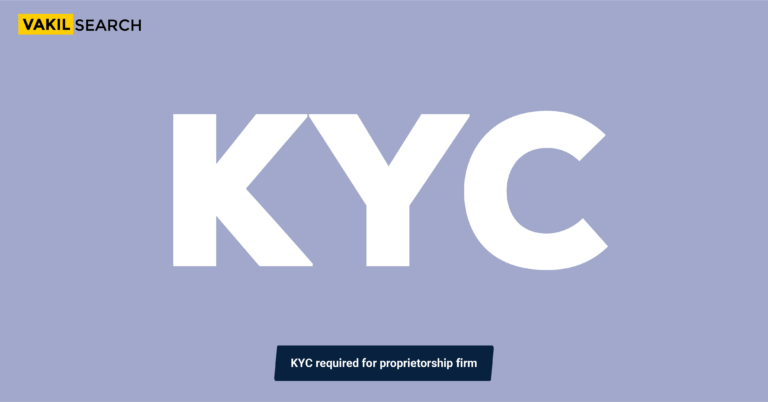Been wondering about expanding and scaling your small business? Consider transforming your proprietorship into a pvt ltd company. In this article, we will take a look at the prerequisites for this .
As a business develops, the demands of the business world and the downsides of sole ownership could constrain its growth and development. This is why many entrepreneurs opt to convert proprietorship to private limited company.
It has significant advantages over other types of ownership structures, such as limited liability, the ability to attract additional funding, perpetual succession, and so on.
Weighing The Pros and Cons of Transformation
You must consider the following key areas before deciding to transform your sole ownership to a pvt ltd company:
Separate legal entity
In the case of proprietorships, the proprietor and the business are one and the same under the eyes of the law. Although proprietors enjoy the benefit of self-governance over their business activities, they are personally responsible for all risks involved in their business. On the other hand, a Pvt ltd company is a separate and individual legal entity. It has its own assets and liability, it can be sued or can sue, purchase or dispose of the property.
Liability
Unlike a proprietorship, shareholders’ liability in a Pvt ltd company is restricted to the amount of their shareholding. Except in cases of fraud, the personal assets of shareholders are never acquired to settle the company’s debts.
In the case of a proprietorship, loan providers may sue the proprietor and seize his assets and property for the obligations of their business. As a result, a proprietor is more likely to face total financial devastation than a shareholder in a Pvt ltd company.
Tax benefits
Pvt ltd companies enjoy corporate tax benefits, where taxes are levied on profits instead of income. On the other hand, a proprietorship not being a corporate entity cannot take advantage of the corporate taxation structure’s exemptions and benefits.
Capital and Fundraising
Proprietorships lack suitable fund-raising options, but Pvt ltd companies benefit from numerous fund-raising avenues. Private limited entities would have little trouble raising cash from a wide range of sources compared to a proprietorship. Banks are more willing to give loans to a Pvt ltd company than a proprietorship.
Perpetual progression
Unlike a Pvt ltd company that enjoys perpetual succession, the legal permanence of a proprietorship is determined by the proprietor’s life span. As a result, retirement or death will result in the dissolution of the proprietorship. This means that heirs interested in inheriting and running the business will be unable to do so.
Public perception
Proprietors have difficulties networking and collaborating on a larger scale due to the fact that their reputation isn’t as credible as it would be if they operated a larger company structure, such as a Pvt ltd company.
Furthermore, Proprietorships find it increasingly difficult to attract high-value employees who are qualified and capable. This is because prospective employees recognize the limited scope for expansion inherent in the business structure.
Administrative Burden
Compliance formalities and requirements of a Pvt ltd company are a lot higher than those of ownership. This is because the laws, regulations, and guidelines under the Companies Act, 2013 govern the operation of private limited company. However, the credibility that corporate entities enjoy on account of meeting the compliance requirements, makes the administrative burden worth the trouble.
Requirements for Transformation
The following conditions have to be satisfied for the Transformation of proprietorship registration into a pvt ltd company:
- A takeover agreement or sale agreement needs to be entered into between the proprietor and the company
- All the assets and liabilities of the proprietorship must transfer to the company
- The Memorandum of Association (MOA) of the Pvt ltd company ought to incorporate a declaration that its object is – ‘The takeover of an ownership concern’
- The shareholding of the proprietor should not be less than 50% of the voting power, and the same should prevail for a period of 5 years
- The proprietor should not receive any additional benefits either directly or indirectly, except to the extent of shares held
- The minimum authorized share capital of the Pvt ltd company should be ₹1,00,000.
Prerequisites for Transformation
- Minimum of 2 shareholders
- Minimum ₹1 lakh share capital
- DIN for all directors
- Minimum of 2 directors
- DSC for all directors
Documents Required for Transformation
For the transformation of proprietorship into a Pvt ltd company you need the following documents:
- PAN card copy of all directors (identity proof)
- Copy of Aadhar card/ voters ID (address proof)
- Passport-size photographs of directors
- Proof of ownership of business place (if owned)
- Rental agreement (if rented)
- No Objection Certificate (NOC) from Landlord (if rented)
- Electricity or water bill
What are the Forms?
- Form 1 filed with MOA, AOA, and other documents
- Further, Form 18 specifies details of the registered office
- Form 32 includes information about the directors
Declaration of Incorporation
After completing the registration process through the SPICE+ form and Agile Pro with the required documents, the MCA upon verification approves the transformation with the Certificate of Incorporation.
If you want help with the transformation or want to do it the easy way, check out the Vakilsearch website’s transforming package. From filling out forms to drafting all the required documents, our experts will take care of everything for you.
Also, Read:










